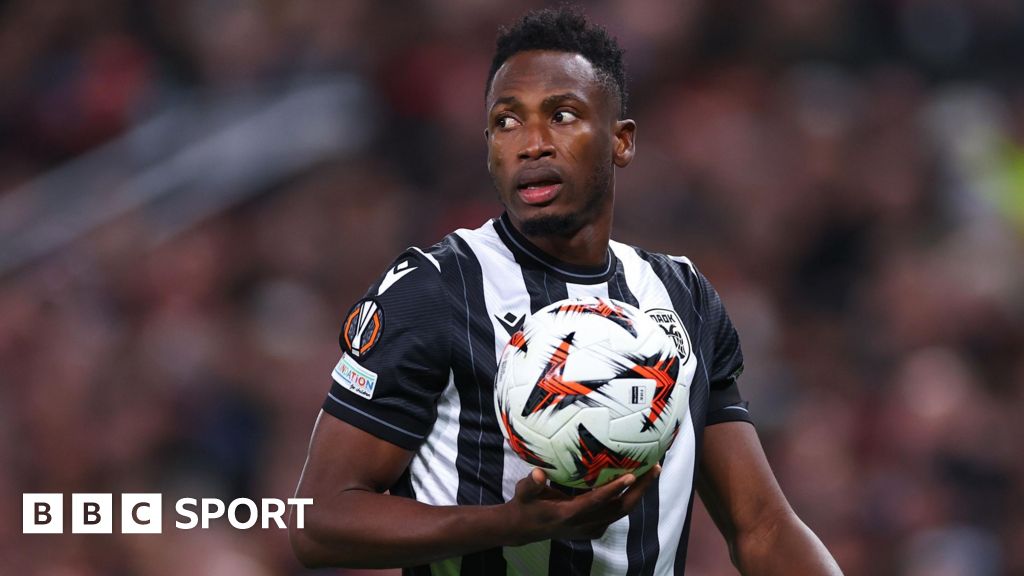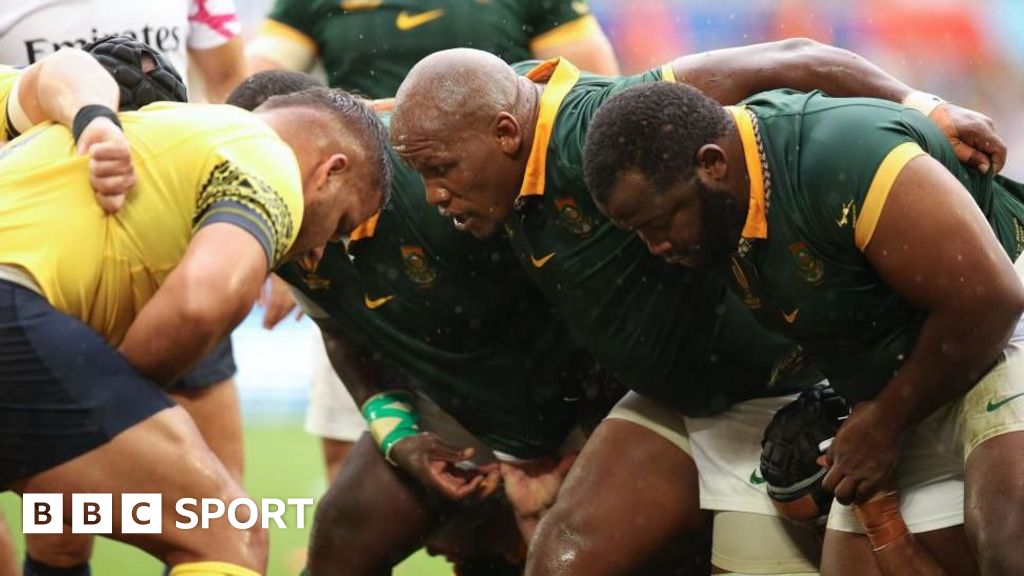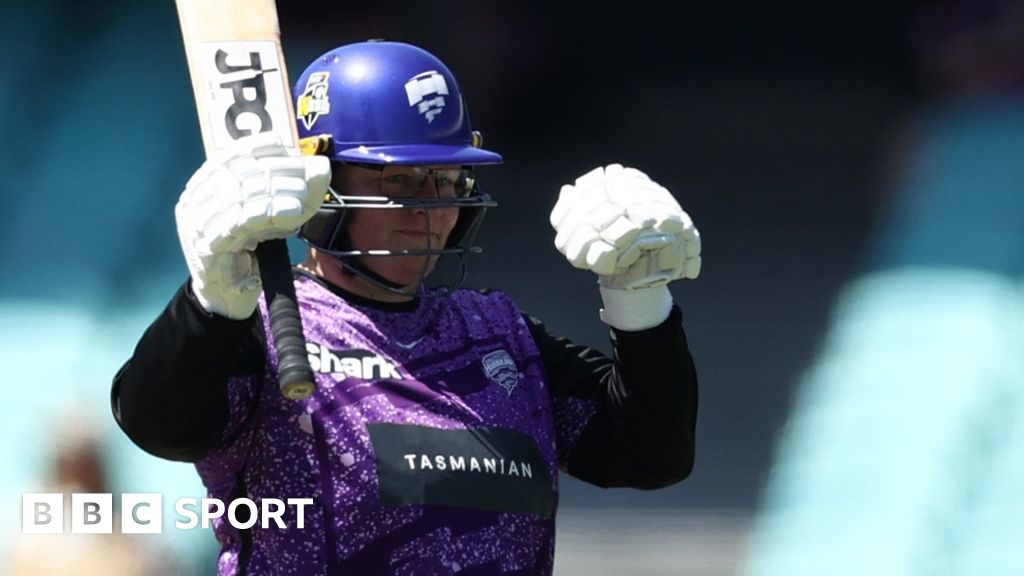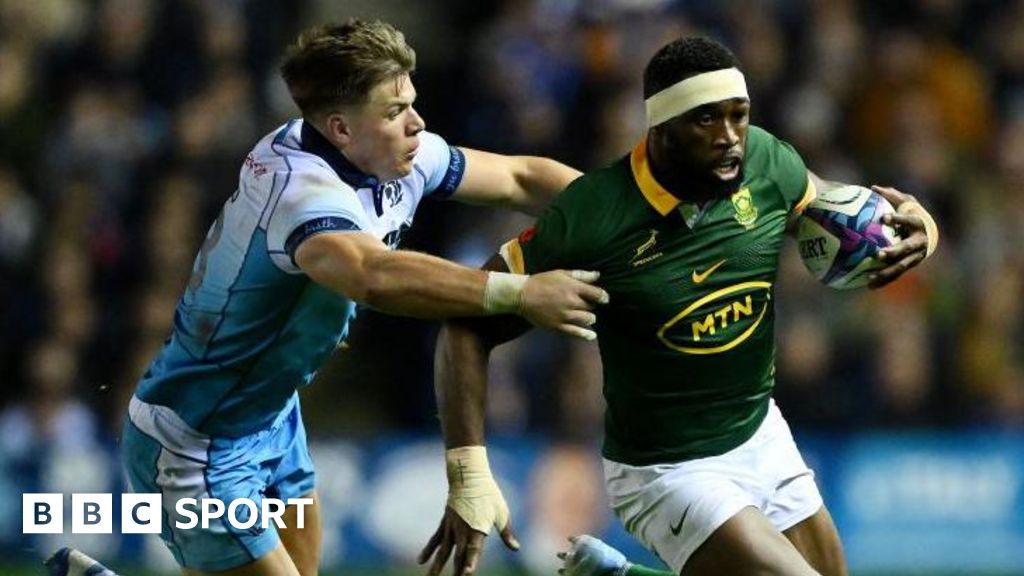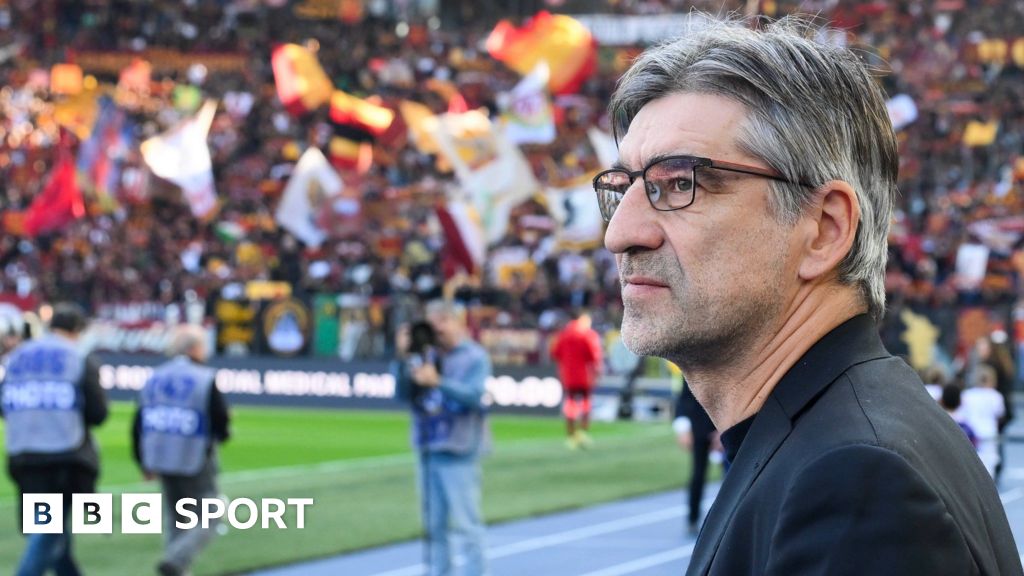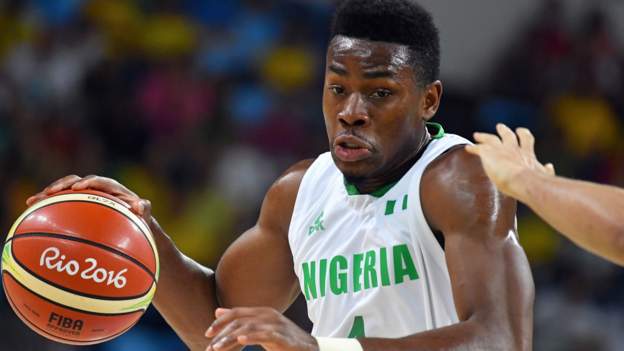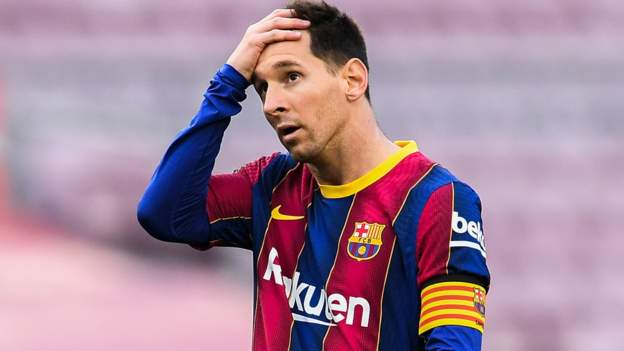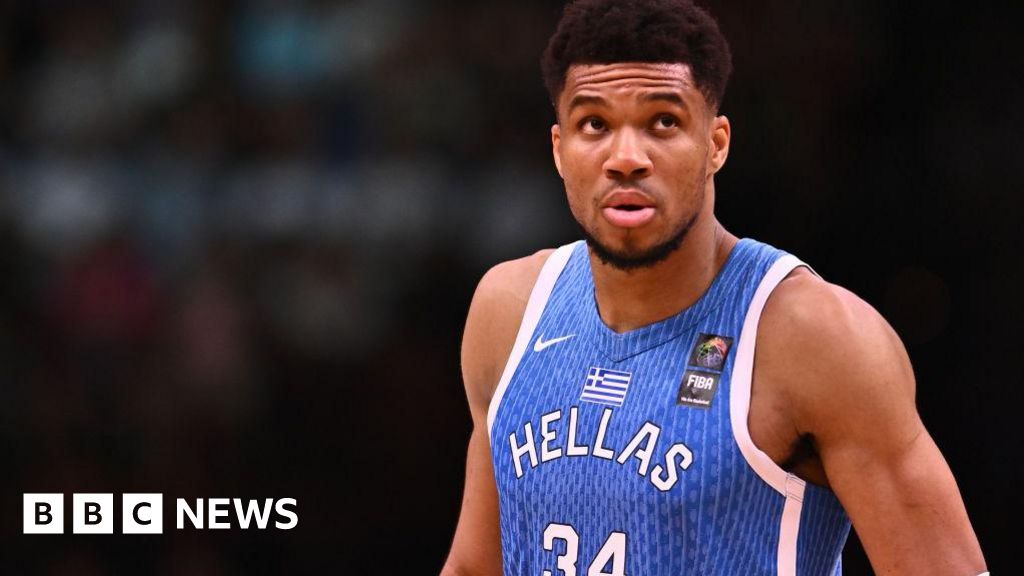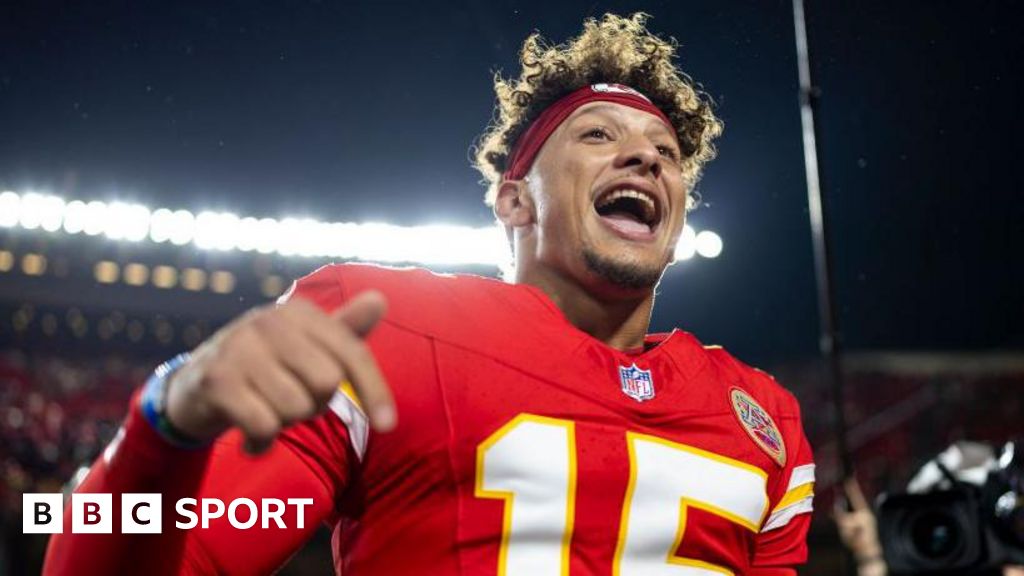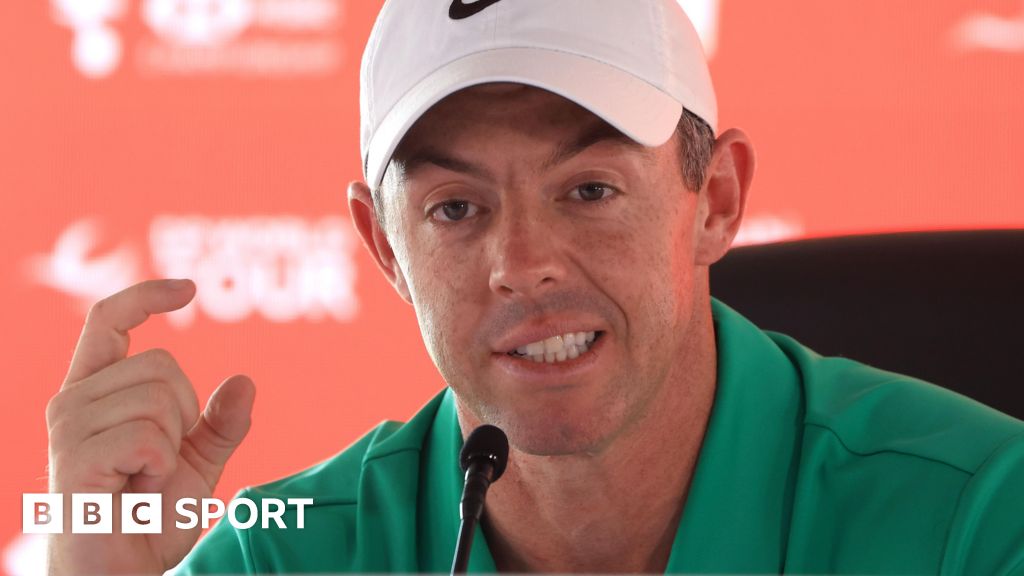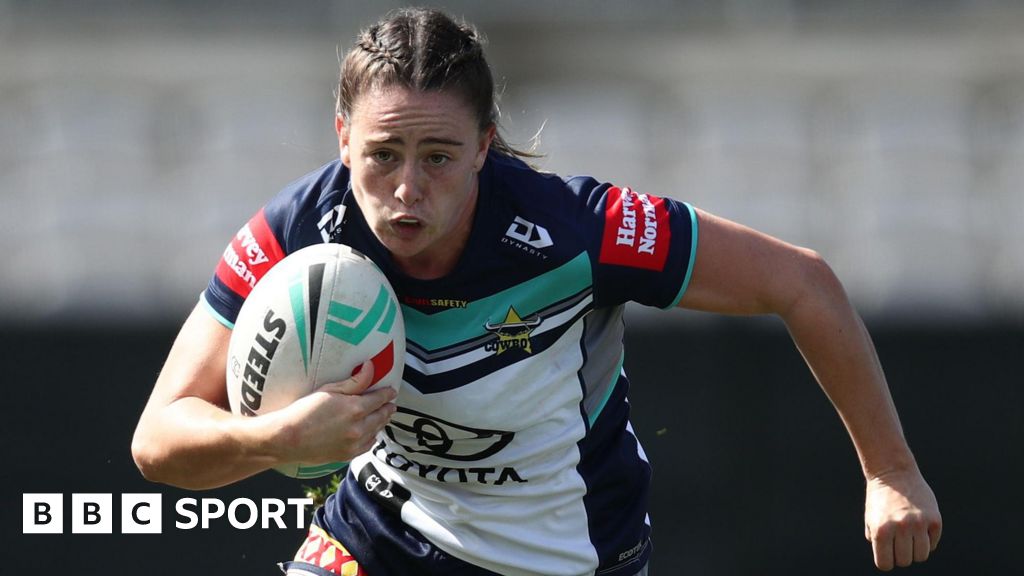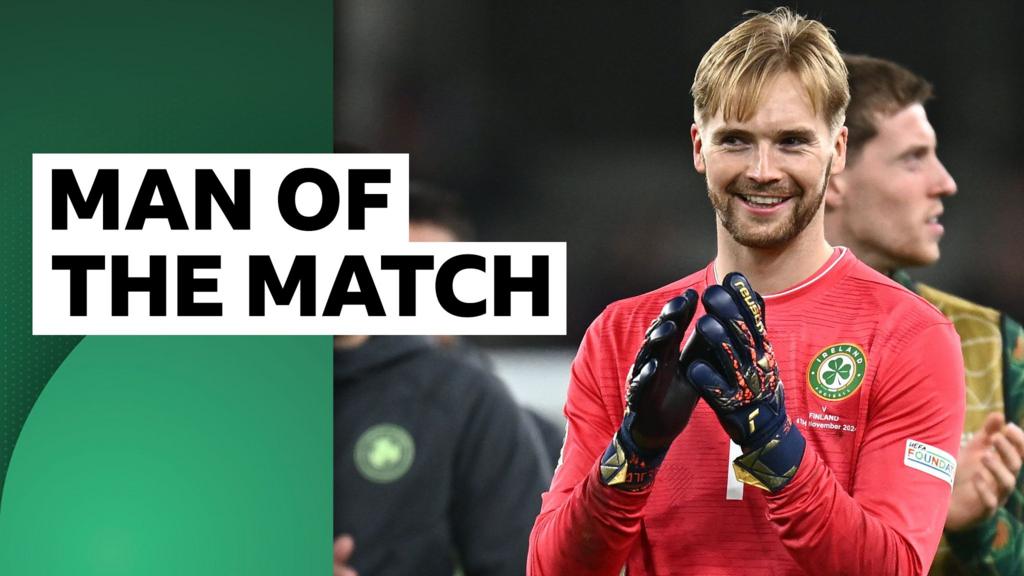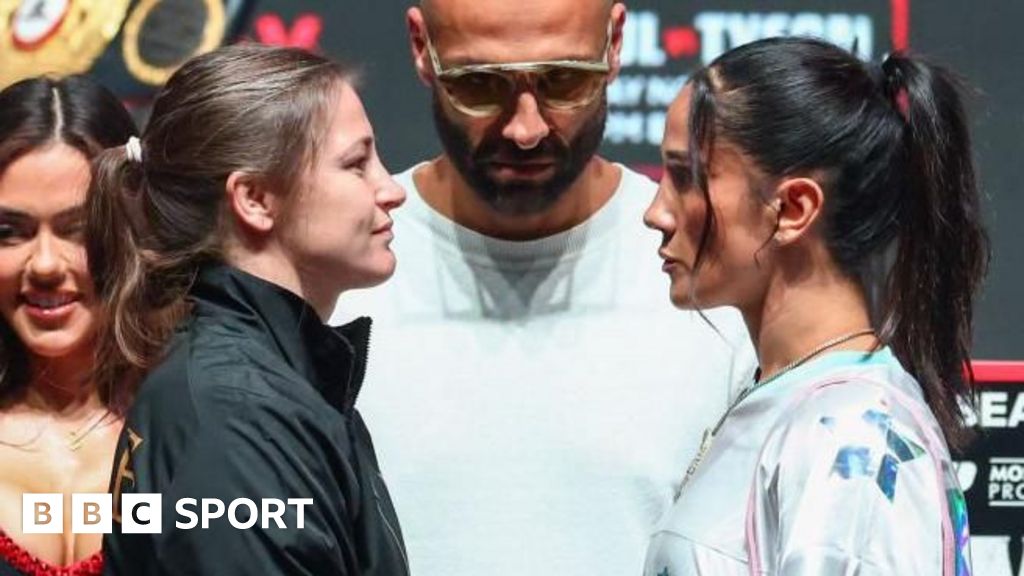Delayed by Covid for over a year, the continent’s new pan-African basketball league will finally tip-off on Sunday 16 May.
Backed by the NBA, the Basketball Africa League (BAL) features 12 teams from 12 countries – but how is it going to work? BBC Sport Africa has been taking a closer look:
Africa’s top basketball club sides are set to face off from Sunday in the Rwandan capital Kigali in a new professional competition designed to promote the sport, drive economic growth and unearth the best up and coming talent.
Such aims are part of the reason for the involvement of the NBA, which is helping to organise a league outside of the United States for the first time.
“We’re here in Africa because we think we can have the biggest impact,” said Adam Silver, the Commissioner for the NBA.
“We see an opportunity on the continent with well over a billion people (and) an amazing affinity for basketball.”
Basketball’s world governing body Fiba is also involved in the hunt for the next Joel Embiid (Cameroon) or Pascal Siakam (Congo).
“Africa is a continent full of secrets and treasure and I think all this treasure is going to be found,” basketball great Dikembe Mutombo told BBC Sport Africa.
“As this game is about to start, there will be more players coming out from the continent that we haven’t seen before.”
The competition replaces the old Africa Basketball League, another pan-African club tournament, which had been running since 1971.
The BAL was supposed to start in March last year, but Covid put a stop to that, meaning tip-off will finally arrive some 14 months late.
Format
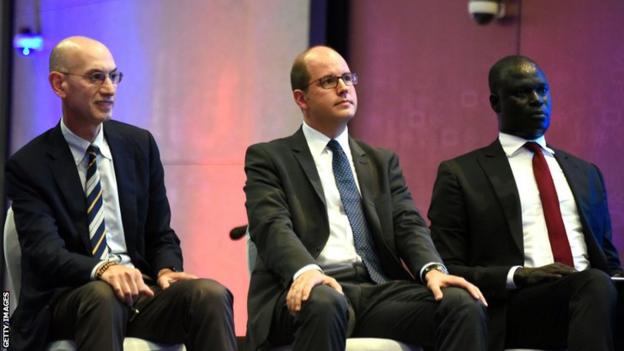
So how will the BAL work? Well, you can think of it as being a bit like football’s Champions League in Europe.
There are 12 teams involved and for the inaugural season, the national champions from Angola, Egypt, Morocco, Nigeria, Senegal and Tunisia were all guaranteed a spot.
The other six teams had to go through qualifying – with representatives from Algeria, Cameroon, Madagascar, Mali, Mozambique and Rwanda all making it through.
Teams have been divided into three groups – with the top two, plus the two best third-placed sides overall, qualifying for the knock-out phase, which starts with the quarter-finals.
There will be 26 games in total, with the first set to tip-off on Sunday 16 May, with the final two weeks later on the 30th.
The format has been adjusted, with fewer games than originally planned, because of Covid, with league organisers saying they will have robust safety protocols in place to combat the virus.
| GNBC (Madagascar) | Petro de Luanda (Angola) | GSP (Algeria) |
| Rivers Hoopers (Nigeria) | FAP (Cameroon) | Zamalek (Egypt) |
| Patriots BBC (Rwanda) | AS Police (Mali) | Ferroviàrio de Maputo (Mozambique) |
| US Monastir (Tunisia) | AS Sale (Morocco) | AS Douanes (Senegal) |
Venue
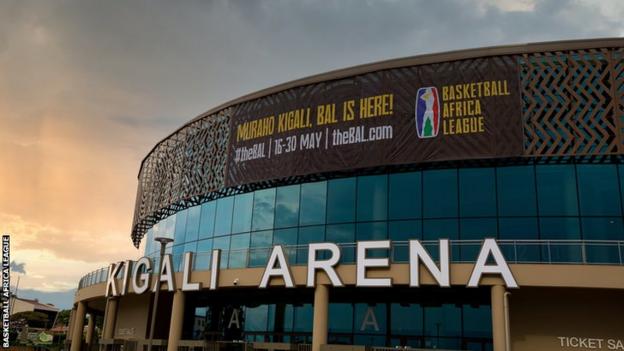
Matches were originally set to be played in seven cities across Africa – Cairo (Egypt), Dakar (Senegal), Lagos (Nigeria), Luanda (Angola), Tunis or Monastir (Tunisia), Rabat (Morocco) and Kigali (Rwanda).
However, due to the coronavirus pandemic everything will now take place at the Kigali Arena.
Brian Kirungi, the president of local – and new – BAL side Patriots, believes the arena will greatly boost local enthusiasm for the sport.
“Now they can touch and feel basketball in their own arena,” Kirungi told BBC Sport Africa.
“They’re going to see all these ex-NBA players, current NBA players and top European basketballers in Rwanda playing locally.
“I see a huge potential – attract more investment, more partners, the corporate world in Africa to say: ‘look, we are taking ourselves from an amateur to a professional stage’.”
Prior to the pandemic, BAL organisers had insisted that every country wanting to become a part of the league would need to build a stadium fit for the modern day.
“You have to meet the same criteria of the stadium that we have in the United States,” said DR Congo-born Mutombo, adding that he never believed the NBA would stage such a competition in Africa.
Squads
Each team will have 12 players on its roster.
Eight have to come from the home country – with only four foreign players allowed, two of whom must come from other African countries.
That means that a minimum of 120 of the 144 players involved will be African.
“It’s a pleasure to make my dream come true,” said Patriots player Sedard Segamba. “Growing up as a kid, I always wanted to play in the African league. Africa is going to be on the map.”
The Future
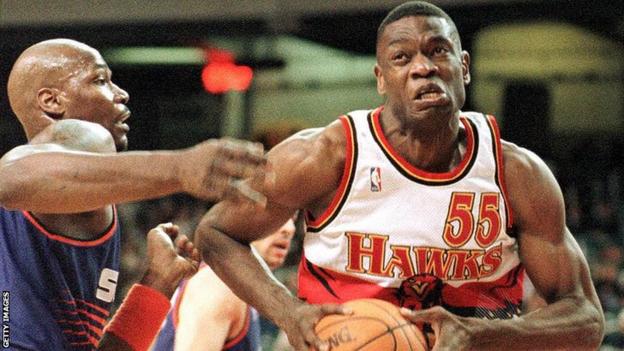
During an 18-year career, Mutombo played for six NBA teams and is widely regarded as one of the league’s greatest ever defensive players, ranking second on the all-time list for most shot blocks.
Having only taken up basketball after being spotted while studying to become a doctor at an American university, the eight-time NBA All Star believes the BAL will create a far clearer pathway to the top for African talent.
“It will change (the standard of African basketball),” he said. “Because our goal is to see some of these best talents come play in the NBA or our G-League (the NBA’s development league).
“The only way they will get there is by working with the NBA coaches or NBA development coaches, learning the NBA skills and NBA techniques.”
And the NBA ambassador believes BAL can boost African teams’ fortunes at both world championships and Olympic Games, where the continent’s top sides have often struggled to make an impact.
“The reason that we have not been able to go far in the Olympics is this,” Mutombo explained.
“American players play four games a week, European players practice twice a day, seven days a week, and play one game a week, but African players play once a week or once every two weeks and practice twice a week because of lack of transportation, lack of funds.
“Now we are talking about building more practice facilities where each team will have a place they call home. The NBA, with its investment, is going to change that.”
Organisers will be hoping he’s right and that the Basketball Africa League, after a difficult start, will soon start inspiring the hoop dreams of millions of young Africans for years to come.


